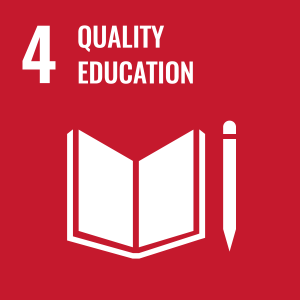
Professor Sorin Krammer
About
Biography
Sorin M.S. Krammer is a Visiting Professor of Strategy and International Business at Surrey Business School.
Professional experience
Professor Strategy and International Business, Department of Strategy, Innovation, and Entrepreneurship, Southampton Business School, University of Southampton, Southampton, UK, 2025-.
Professor Strategy and International Business, Strategy and International Business Department, Surrey Business School, University of Surrey, Guildford, UK, 2022-2025.
Professor Strategy and International Business, Management Department, University of Exeter Business School, Exeter, UK, 2019-2022.
Associate Professor of International Business and Innovation, International Business Division (CIBUL), Leeds University Business School, Leeds, UK, 2017-2018
Assistant Professor of International Economics and Business, Global Economics and Management Department, University of Groningen, Groningen, the Netherlands. 2010-2016
Postdoctoral Fellow and Associate, MIT Sloan School of Management and NBER, Cambridge, MA, USA. 2009-2010.
Social media
Areas of specialism
University roles and responsibilities
- Research Lead - Department of Strategy and International Business
- Sustainability Fellow - Institute for Sustainability
My qualifications
Affiliations and memberships
News
ResearchResearch interests
My research interests evolve at the intersection of International Strategy and Innovation Management.
Scholarly profiles
Research interests
My research interests evolve at the intersection of International Strategy and Innovation Management.
Scholarly profiles
Supervision
Postgraduate research supervision
I am interested in supervising PhD candidates in the areas of International Business / Strategy / Applied Economics to work on firm-level topics such as: green innovation, MNEs and sustainable development goals, greenwashing, non-market strategies, diversity and firm performance, firms and economic shocks, bibliometrics, academic productivity among others.
Candidate's checklist:
- a MSc/ research MSc. in Business/Economics/Allied Social Sciences (required)
- curiosity, drive, and motivation to undertake research independently and collaborative (required)
- command of statistical packages or coding (Stata, R, Python) (desirable)
- good English writing and speaking skills (desirable).
Postgraduate research supervision
Current students: Zhen Liu - Political connections for greater good (expected graduation 2027).
Teaching
Prof. Krammer's experience spans a variety of subjects (e.g., International Business, Economics of Strategy, Economic Organization Theory of the Firm, Globalisation of Innovation, International Business Environment, Research Methods) and settings (from small, specialised Ph.D. courses to large and very large M.Sc. and B.Sc. classes).
My interests and expertise combine analytical skills from economics with interesting qualitative insights through case studies and examples. In terms of accolades, courses I have taught/delivered, have been rated as “A”s in terms of student evaluations and I have been awarded several distinctions such as Best Personal Tutor award (2017, University of Leeds) and a top 5% lecturer (2012, University of Groningen).
Teaching:
MANM009 - International Business Management
MANM550 - Strategy
Sustainable development goals
My research interests are related to the following:



Publications
Despite the prevalence of teams in research, there is a lack of a good understanding of how their size and diversity affects their performance. We develop a theoretical framework that distinguishes two dimensions of research performance for an academic paper: impact (i.e., subsequent citations) and prestige (i.e., ranking of the journal where research is published). We propose that, while larger teams will enhance linearly the impact of research, they will affect its prestige in a nonlinear fashion. We further contend that these effects will be moderated by knowledge and international diversity of the teams. We test these hypotheses using bibliometric data between 1990 and 2020 on more than 1.4 million papers and 18 million citation counts across 22 subfields in management. Our results confirm significant benefits for research impact from both team size and diversity, but also highlight drawbacks when teams become very large and heterogeneous. Moreover, we find a nonlinear positive effect of team size on research prestige that can be offset only by high levels of knowledge diversity. These findings are robust to a variety of proxies, controls, and estimation techniques, including instrumental variables and propensity score matching. We discuss practical implications for stimulating research performance in business schools.
The rapid rise to prominence of ChatGPT, one of the most successful generative Artificial Intelligence (AI) tools to date, presents both important challenges and opportunities for Management Education. Specifically, while it improves prospects in many areas (i.e., remote learning, asynchronous communication, online collaboration, gamification, student engagement, and assessments) it also poses significant challenges, particularly in relation to academic integrity and traditional forms of assessment (i.e., "open book", non-invigilated, essays). Drawing on insights from social epistemology, I argue that this exogenous shock to the educational system provides opportunities for epistemic evolution, particularly in fields like Management Education, where essays have traditionally been the dominant form of assessment. I conclude by proposing potential responses to this disruption that can enable educators, students, and institutions to succeed in this new environment.
Abstract Research Summary Prior studies on business groups (BGs) have predominantly focused on the impact of group affiliation on financial performance. In contrast, we argue that BG affiliates will outperform standalone firms in terms of corporate social performance (CSP) and that this effect will be positively moderated by the strength of formal and informal institutions. Moreover, we examine also differences among BGs and hypothesize that diversification and hierarchy of the group will negatively affect the CSP of affiliates. Employing a panel of 4368 firms from 43 countries between 2003 and 2016 and a propensity score matching approach in our regressions, we find robust support for these predictions. Our findings advance two distinct strands of literature on BGs and, respectively, corporate social responsibility. Managerial Summary BG are a common organizational structure in many countries. Despite this, we still do not know much about them beyond their financial performance. In this study, we focus on examining the impact of BG affiliation on non‐financial performance (i.e., CSP) in the light of growing societal grand challenges. Using an international dataset of several thousands of firms, we find out that BG affiliates exhibit superior CSP results compared to non‐affiliated firms. These positive effects of affiliation are increased in environments with strong formal and informal institutions but reduced within groups that are more diversified and hierarchical. Our findings showcase the importance of BGs in tackling some of today's grand challenges and provide support for more nuanced approaches to study BGs across countries.
With the rise of Netflix, Disney+, Apple TV and Amazon Prime, the media landscape has become much more competitive and diversified in terms of TV offerings. On-demand services have also benefited greatly from COVID-19 lockdowns, ushering in a new generation of block-buster series (e.g., Stranger Things, Squid Game, Succession) and motion pictures (e.g., Coda; All Quiet on the Western Front) that now dominate the market both in terms of earnings and critical accolades (BBC News, 2022; Apple, 2022; Reuters, 2023). However, this success has bred more demand for gripping tales and shocking twists, turning some new productions increasingly gory and sexually explicit. A recent example of this is Netflix’s Dahmer – Monster: The Jeffrey Dahmer Story, a true crime series focusing on one of the most famous US serial killers who murdered and dismembered 17 victims between 1978 and 1991.
In this study, we analyse organisational resilience in the context of the recent COVID-19 pandemic. Combining arguments from the resource-based view and ergodicity, we theorise that organisational resilience depends on certain key characteristics of firms and their ability to innovate their business models. Specifically, we focus on female leadership and multi-unit structure as two characteristics that may condition the resource availability of firms during the pandemic and consider firms' innovative actions in response to the pandemic. We test our hypotheses using data from more than 11,000 firms in 34 countries. Our results confirm that female-led firms are less resilient, while multi-unit firms and those that introduced business model innovations are more resilient to the COVID-19 shock. Based on these findings, we suggest management and policy implications for building a firm’s resilience to future disruptions.
How will variation in legal distance influence a foreign subsidiary's propensity to engage in entrepreneurially orientated initiatives within the context of an emerging market environment? We answer this question by combining elements of institutional theory to suggest that legal distance between a foreign subsidiary's parent home and host country, as well as managerial perceptions of deficiencies in the host country legal service sector, will influence EO initiatives. By analyzing 352 multinational enterprise foreign subsidiaries operating in the Philippines and Thailand our results indicate the complexity of these relationships in that there is a curvilinear (U-shaped) relationship concerning the legal distance between a foreign subsidiary's parent home and host country and its propensity to engage in EO initiatives. Our findings also suggest that this curvilinear relationship will strengthen as managerial perceptions of host country legal deficiencies increase, particularly when the parent possess an in-house legal affairs department. Following these insights, we discuss theoretical implications and future research opportunities.
With ever increasing global integration, productivity improvements depend not only on in-house innovative efforts, but on those of international partners as well. This paper explores the impact of foreign R&D on productivity and technical efficiency of countries by considering three major channels of embodied and disembodied spillovers, namely trade, foreign direct investment and patenting, and controlling for direct licensing of foreign technologies. Furthermore, it contrasts these effects across 47 developed and transition countries between 1990 and 2009. Overall, I find that trade remains the dominant factor behind productivity and technical progress, while the effects of FDI- and patent-related spillovers are significantly smaller. The effect of foreign patenting is larger in developed nations while imports, inward FDI and foreign technology licensing are important sources of know-how for transition economies. The aggregate gains from spillovers appear larger for latter, confirming their significance in the process of development and catching-up
Prior research suggests that firms’ ability to benefit from their technologies is determined by the strength of intellectual property (IP) laws and the inimitability of their technologies. We complement this explanation by suggesting that the generation of profits from technology is also driven by how effectively firms engage in patent infringement litigation (i.e., take legal action against their rivals) to create isolating mechanisms and protect their technologies. We contend that patent infringement litigation is characterized by industry and geographic specificity that affect (disproportionately) revenue generation and costs and, therefore, its net effect on firm profitability. By identifying contingencies that influence the economic returns from patent litigation, the analysis helps us understand why firms experience different profitability outcomes even when they operate in similar IP regimes and possess similar portfolios of technologies.
The COVID-19 pandemic has significantly impacted businesses worldwide by lowering demand, impeding operations, stressing supply chains, and limiting access to finance. Yet we still lack an understanding of how firms can successfully adapt to this disruption. I examine this issue theoretically by combining arguments around dynamic capabilities and managerial cognition and developing several hypotheses concerning firm innovation, knowledge sources, management practices, and gender issues in relation to firms’ adaptation to this crisis. I test these assertions using data from two rounds of surveys involving more than 11,000 firms from 28 countries both before and after COVID-19 was officially declared a global crisis. The empirical results provide prima facie evidence that innovators, in particular those who are younger (i.e. start-ups) and those who rely on internal sources of knowledge, are more likely to adapt to COVID-19 than non-innovators. Moreover, firms with better management practices exhibit also greater ability to adapt to the crisis. I did not find systematic gender differences upon examining firms managed by women versus men. Following these findings, I set out several implications for research and policy.
Despite the consensus on the negative country-level implications of corruption, its consequences for firms are less understood. This study examines the effect of bribery on the innovative performance of firms in emerging markets as reflected by new product introductions. I argue that bribery may help innovators in these markets to introduce new products by overcoming bureaucratic obstacles, compensating for the lack of kinship or political affiliations, and hedging against political risk. I also propose that the relationship between firm bribery and new product introduction will be negatively moderated (i.e., weakened) by the quality of the formal and informal institutions in place. Employing data from over 6,000 firms in 30 emerging markets and a wide range of empirical tests, my results support these hypotheses. These findings extend transaction costs economics by showing that bureaucratic obstacles and uncertainty can drive firms into illegal cost minimization strategies. Moreover, they augment institutional theory by expounding upon the ways that norms and informal practices moderate the efficiency of firm strategies in emerging markets.
We advance a two-stage theoretical model which contends that the export performance of emerging economy firms (EEFs) will depend both upon their firm-specific capabilities and their home institutional environments. Specifically, we argue that EEFs will be more likely to export when facing more uncertainty at home from greater political instability, substantial informal competition, and high corruption. Furthermore, we hypothesize that firms’ export intensities will be contingent upon specialized internal capabilities such as a skilled workforce, top managerial experience, and access to external technologies. We test these hypotheses using a dataset of more than 16,000 firms from the four BRIC economies (i.e., Brazil, Russia, China and India). Our results confirm that political instability and informal competition have robust effects on the export propensity of EEFs, whilst export intensity is contingent upon the availability of skilled workers and access to external technologies via licensing.
Despite inherent differences across disciplines, collaboration in general and larger teams of co-authors in particular, are prevalent strategies to increase research performance via academic publications. We take a more fine-grained view of this relationship by distinguishing between two dimensions of research performance, namely impact (i.e., subsequent citations of a paper) and prestige (i.e., the ranking of publication journal). Different from prior literature, we argue that there are both benefits and pitfalls in having larger teams, and these trade-offs will affect differently the impact and prestige of academic research. Specifically, we propose that while team size will enhance linearly the impact of a paper, it will contribute in a non-linear fashion to its prestige. Furthermore, these relationships will be moderated by the knowledge and international diversity of the team. We test these hypotheses using bibliometric data on more than 40,000 publications between 1994 and 2013 papers across 21 sub-fields within the realm of Business and Management. Our results broadly support our theoretical assertions. We discuss some practical implications for assessing and stimulating the research performance of academics in business schools.
This paper examines the effects of human resource (HR) policies on firm innovation. Specifically, I argue that firms who implement policies to stimulate job autonomy and performance-based pay will be more likely to innovate, as proxied by investments in R&D. In addition, I contend that the institutional (i.e., labour regulations) and competitive (i.e., pressure from imports) contexts in which a firm operates will affect the relationship between HR policies and innovation, albeit in different ways. These hypotheses are tested using a dataset of more than 900 firms across a heterogenous set of 12 countries, majority of which are emerging markets. I find strong empirical backing for the role of both job autonomy and performance-based pay policies in stimulating firm innovation, and partial support for the moderating effects of institutional and competitive contexts of this relationship.
This paper posits that corporate and technological diversification of firms and their relatedness in terms of products and technologies will impact their propensity to form technological alliances. It argues that both higher levels of diversification and greater relatedness signal superior capabilities and available resources to prospective partners that will facilitate exploration and exploitation of technological assets in an alliance. These theoretical conjectures are tested using a dataset of all tire producers worldwide between 1985 and 1996 that combines detailed firm data on establishment, patenting, and alliance activities. The results indicate that complementarity in terms of corporate and technological diversification strategies, as well as partner characteristics (e.g., size, age, and technological capabilities) drive exploitation alliances. Moreover, firms with similar product portfolios are more likely to engage in exploitative interactions. In contrast, exploration alliances exhibit strong partner similarity across all firm characteristics. Both corporate and technological diversification have positive effects on firms’ propensity to engage in exploration, while technological distance has a negative nonlinear one.
Why should we, as Management scholars and educators, care about a book on political diagnosis? The answer is twofold. First, the calibre of the author (Paul Starr), an awardee of both Bancroft and Pulitzer Prizes, a former policy advisor to the Clinton administration, and the author of The Transformation of American Medicine (1982), a book with a profound impact on American policy circles. Second, the core concept (entrenchment) of the book, and its potential to advance the process of institutional development, and the ways in which we can reform and change our institutions to better meet the current and pressing needs of the many, rather than preserve the unequal privileges of a few. In light of the geopolitical, social, and environmental pressures we see currently rising across the world (George, Howard-Grenville, Joshi & Tihanyi, 2016; Howard-Grenville, Buckle, Hoskins & George, 2014) there is no better time to examine whether and how we can address some of these grand challenges by reforming and improving our institutions
Rising inequality is one of the grand societal challenges of our time. Yet, its effects on firms – including multinational enterprises (MNEs) – and their operations have not been widely examined by IB scholars. In this study we posit that income inequality within a country is positively associated with the incidence and severity of crime experienced by businesses. Further, we propose that this relationship will be negatively moderated by social cohesion (in the form of greater societal trust and lower ethno-linguistic fractionalization) in these countries, such that social cohesion helps to offset the negative impacts of inequality on crime against businesses. We test these hypotheses using a comprehensive data set of 114,000 firms from 122 countries and find consistent support for our theses. Our findings, which are robust to different alternative variables, model specifications, instrumentation, and estimation techniques, advance our understanding of the intricate ways through which inequality affects societies worldwide, specifically via business organizations, and the challenges this may pose to MNEs and other businesses. They also offer important managerial and policy insights regarding the consequences of inequality and potential mitigation mechanisms.
Careful partner selection is a prerequisite for successful alliances. I posit that institutional distance will influence partner selection in international technological alliances negatively for exploitation, and positively for exploration alliances. A longitudinal dataset of firms in the global tire industry confirms firms' preference for similar cognitive, normative, and regulatory partners in exploitation alliances, and a preference for dissimilar partners in exploration alliances. However, the latter is true for differences across the regulative and cognitive pillars rather than for normative differences. These findings attest to the antipodal role of institutional differences in the selection of prospective partners for cross-border technological alliances.
This paper argues that institutional quality has both direct and indirect (moderating) effects on productivity of countries. These hypotheses are tested using a battery of institutional proxies (governance, economic freedom, intellectual property rights and ease of doing business) and two channels for technological spillovers (trade and FDI) in a panel of developed and transition economies. The results confirm that good institutions have positive and comparable direct effects on productivity across the board. However, they moderate differently the relationship between foreign technological spillovers and productivity. Thus, governance, IPR and economic freedom exhibit negative moderation in the case of transition economies, while easiness of doing business moderates positively this relationship for both groups of countries. Further, the moderation effects are larger for transition economies and for trade-related spillovers. Overall, these results suggest a trade-off for transition countries between pursuing institutional upgrades and enjoying greater gains from technological spillovers. •This paper argues that institutions affect productivity directly and indirectly.•It tests these hypotheses using a battery of institutional indicators and countries.•Good institutions have robust and positive direct effects on productivity.•Institutions moderate the effect of spillovers contingent on country specifics.•These effects are negative and more prevalent for trade and transition economies.
We examine how political instability (PI) affects firms' product innovation and the strategies that firms can employ in response to PI. We argue that while higher levels of PI influence firms' innovation negatively, greater international exposure (through foreign ownership and exporting) can help firms partly overcome this external challenge and innovate. We test these predictions using a dataset of 3000 manufacturing firms across 15 countries from Sub-Saharan Africa. The empirical results confirm a robust and negative effect of PI on firms' product innovation through several mechanisms. They also suggest that all firms in a country, regardless of ownership structure, are equally affected by PI. Finally, higher levels of exporting weaken the deleterious effects of PI on innovation for both domestic and foreign firms. Our study offers insights into the barriers of innovation in emerging economies and explicates why some firms are more innovative than others in politically unstable contexts.
Smart specialization (SS) is a policy concept that has gained significant momentum in Europe despite a frail theoretical background and implementation difficulties. These challenges become critical in the case of less-developed economies that often lack regional autonomy, a strong STI base, and local capabilities to identify and sustain such SS strategies. Combining elements from evolutionary economics and the export-led literature, I propose a framework that anchors the role of SS in the national innovation policy of such laggards, as a complementary avenue for improving competitiveness and growth. Moreover, to assist policy makers in lagging regions or countries, I advance a diagnostic tool to identify potential areas for SS, and also address the systemic and the regional-sectoral bottlenecks in these domains. I exemplify the use of this tool in the case of Bulgaria by using a large battery of quantitative and qualitative indicators from publicly available data. This type of investigation may be useful for other less-developed economies to kick-start this process and identify prima facie SS candidates.
Innovation plays a crucial role in determining today’s economic growth patterns. But what enables some countries to innovate more than others? This study attempts to answer this question by analyzing in premiere a panel of sixteen Eastern European transition countries. It provides a detailed description of innovation identifying regional differences in terms of historical heritage, technological specialization, commitments and main actors involved in this process, before and after the fall of communism. Secondly, it explores empirically the main drivers of their innovative output, proxied by patents, using a variety of econometric techniques and control variables. The results confirm the crucial role of universities and existing national knowledge base complemented by R&D commitments from both public and private sources. Policy measures, such as intellectual property rights protection or a favorable business climate, increase significantly the propensity to patent, while measures of transitional downturn and industrial restructuring diminish it. Finally, globalization contributes to developing new innovations in these countries through inflows of foreign investment and trade.
Rising inequality is one of the grand societal challenges of our time. Yet, its effects on firms - including multinational enterprises (MNEs) - and their operations have not been widely examined by IB scholars. In this study, we posit that income inequality within a country is positively associated with the incidence and severity of crime experienced by businesses. Further, we propose that this relationship will be negatively moderated by social cohesion (in the form of greater societal trust and lower ethno-linguistic fractionalization) in these countries, such that social cohesion helps to offset the negative impacts of inequality on crime against businesses. We test these hypotheses using a comprehensive data set of 114,000 firms from 122 countries and find consistent support for our theses. Our findings, which are robust to different alternative variables, model specifications, instrumentation, and estimation techniques, unpack the intricate ways through which inequality affects businesses worldwide and the associated challenges to MNEs. They also offer important managerial and policy insights regarding the consequences of inequality and potential mitigation mechanisms.
While economic theory predicts that growth in developing countries will gain significantly from technology spillovers, the empirical evidence on this issue remains relatively scarce. The present study focuses on a panel of 27 transition and 20 developed countries between 1990 and 2006 and uses the latest developments in panel unit root and cointegration techniques to disentangle the effects of international spillovers via inflows of trade and FDI on total factor productivity (TFP). The findings show that imports remain the main channel of diffusion for both sets of countries, while FDI, although statistically significant, has a lower impact on productivity of the recipients. The domestic R&D capital stock plays an active role in Western Europe while in the Eastern part it is less significant owing to lower levels, transitional disinvestment and relative obsolescence. Human capital affects TFP directly as a factor of production as well as indirectly by enhancing a country's absorptive capacity. In aggregate, the results show that transition countries from Eastern Europe and Central Asia seem to enjoy bigger productivity gains from the international diffusion process than their Western counterparts.
Despite substantial benefits to organizations, increasing gender diversity in corporate boards remains an elusive problem due to persistent in-group biases that favor men. We engage in this conversation by probing theoretically and empirically the effects of economic shocks on board gender diversity (BGD) and the role of female leadership along with regulatory elements (i.e., gender quotas and corporate governance codes) in tackling this bias. We test our predictions using a large dataset of 6,582 firms and 45,610 observations in a quasi-experimental design that captures the heterogeneity of economic crisis in an international sample of 23 countries. Our results confirm a robust decline in BGD in the wake of an economic shock and a complex interplay between female leadership and the regulatory environment. Our findings contribute to leadership research on the bias faced by out-group minorities within organizational upper echelons and female leadership's role in dealing with pervasive organizational biases.
Entrepreneurship is a cornerstone of technological innovation and economic development. We posit that the genetic make-up of countries (populations) will affect the extent of their engagement in entrepreneurial activities, in addition to the factors showcased by prior literature (e.g., institutions, culture, socio-economic, demographic, or historical). To test this conjecture we employ a country-level genetic measure that is commonly associated with novelty- and risk- seeking behaviours using the frequency of the 2- and 7-repeat allele variants of the DRD4 exon III gene. Our results confirm a systematic, positive association between genetics and entrepreneurial activities across 97 countries using a large set of controls and battery of robustness tests. These findings reconcile the “nature versus nurture” debate with respect to entrepreneurial activities around the world and provide some valuable insights on the significance of different determinants of entrepreneurship
We posit that the investments in political connections made by a firm in an emerging market will impact differently its propensity to introduce radical and incremental innovations. In addition, we argue that this effect will be moderated by alternate non-market firm strategies, such as bribery. Using a dataset of more than 9000 firms in 30 emerging economies from Eastern Europe and Central Asia we find that political connections increase the probability of radical innovation but have no significant impact on incremental innovation. Moreover, larger bribing reduces the positive impact of political connections on radical innovation. Our results confirm the importance of political connections for firm activities, but also caution firms on their heterogeneous impact on various types of innovations, and their detrimental interplay with other non-market strategies.
Despite the global liberalization of trade, financial and technological flows, there still are tremendous disparities in terms of income per capita and growth rates across countries (Hall and Jones, 1999). Among the plethora of explanations proposed in the economic literature on this phenomenon, institutions have become a common factor for long-term economic performance (Acemoglu et al., 2001) as well as international activities such as trade (Dollar and Kraay, 2003) and foreign direct investments (Ali et al., 2010) and the legitimacy or failure of states (Subramanian et al., 2004). Given these pivotal implications of institutions for the social and economic welfare of countries, this chapter proposes to review the current institutional background of countries in the Middle East and North Africa (MENA) region and provide some insights into the historical and more recent evolution of formal institutions in this part of the world.
The Journal of Management Studies, founded in 1963, is celebrating its 60th year. Clark et al. (2014) conducted a bibliometric analysis for its 50th anniversary assessing whether the journal had maintained its leading international ranking and sustained its mission to serve as a broad-based management outlet. In this review, we build on and extend their findings by examining trends in the journal over the past decade (2012-22). We present a broader analysis of JMS by exploring its unique identity within the management journal ecosystem and examining its scope and breadth in terms of topics, methods, and author demographics to document JMS's evolution, impact, reach, and accessibility. We develop a new bibliometric framework that employs a mix of qualitative and quantitative analyses (including regression, text, and language analysis) to cover a broad range of considerations for a journal and its stakeholders. In so doing, we contribute to the bibliometric and review research areas by proposing new metrics (related to diversity, equity, and inclusion) and analysis tools to assess the relative position of an academic journal. Employing this framework, we conclude that JMS has retained and enhanced its position as a leading, cutting-edge general management journal.








